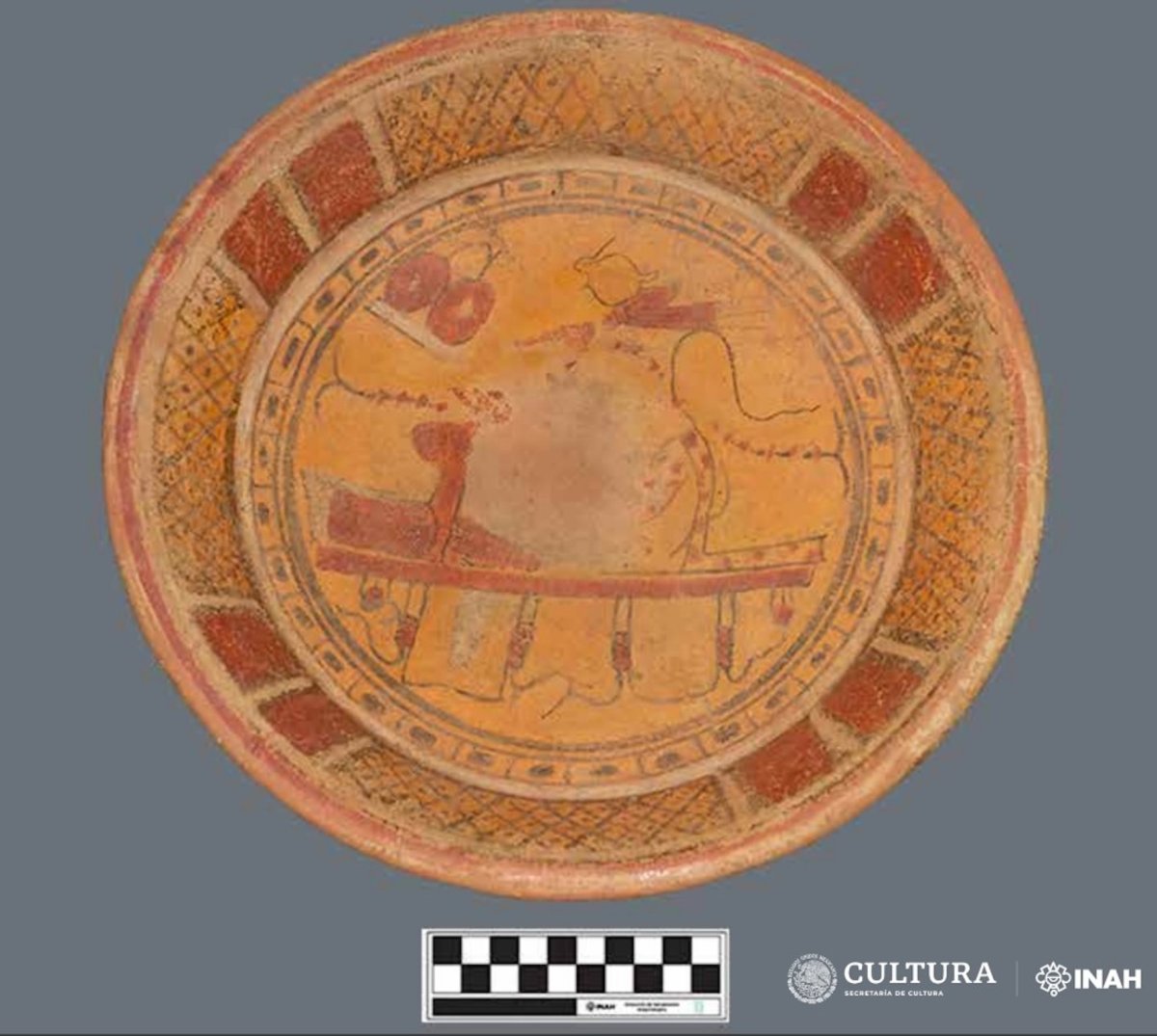An ancient Maya artifact depicting a supernatural entity has been discovered in Mexico.
Researchers with the country's National Institute of Anthropology and History (INAH) uncovered the ceramic dish during excavations at the Cansacbé archaeological site. It is located around 7 miles from the port city of Campeche in the Gulf of Mexico.
The multicolored dish was found in a male burial dated to the Late Classic period (600 to 900 A.D.) of Mesoamerican history, INAH said in a statement.
The Maya civilization dominated what is now southeastern Mexico, Guatemala, Belize, and the western areas of El Salvador and Honduras for more than 3,000 years until the era of Spanish colonization.

The Maya were notable for creating the only fully developed writing system in pre-Columbian America, and for their striking architecture and art, as well as their advanced calendar, mathematics, and astronomical system.
The dish found at Cansacbé features a representation of a "wahyis"—protective spirits or beings found in Maya mythology. The artifact was intended as a funerary offering, INAH said.
Researchers think the individual who was buried with the dish was possibly a member of the local elite.
After its discovery, the artifact was carefully cleaned at a laboratory in Campeche. Despite the fact that the illustrations have faded in some areas, it is possible to see the representation of a jaguar, or a man dressed in the skin of a jaguar, standing on a bench. The scene is framed by small boxes that appear to represent the shells of turtles.
These types of representations are common in Maya ceramics from the Late Classic period, INAH Director General Diego Prieto Hernández said in a statement.
For most of the 20th century, the Cansacbé site was never systematically studied. And unfortunately, in the first half of the century, several of its mounds were used as material for the construction of a highway that connects Campeche to the city of Mérida.
Then, in the 1990s, excavations conducted during the expansion of that highway uncovered the remains of two palace-type buildings.
The latest discovery of the ceramic dish at the site came during prospecting and salvage on a section of the Tren Maya project. This is an almost 1,000-mile-long intercity railway, scheduled to start operating in December 2023, that traverses Mexico's Yucatán Peninsula—the heart of the ancient Maya civilization, which is rich in antiquities.
The project is one of the largest and controversial infrastructure projects in the history of Mexico. It aims to bring tourists from the region's popular beach resorts to lesser-known inland locations, including historic Maya sites, that represent some of the poorest parts of southern Mexico.
While thousands of ancient Maya artifacts and structures have been uncovered during work for the project, critics say it places others at risk of damage or destruction, as has already occurred. Some have also raised environmental concerns.
Uncommon Knowledge
Newsweek is committed to challenging conventional wisdom and finding connections in the search for common ground.
Newsweek is committed to challenging conventional wisdom and finding connections in the search for common ground.
About the writer
Aristos is a Newsweek science reporter with the London, U.K., bureau. He reports on science and health topics, including; animal, ... Read more
To read how Newsweek uses AI as a newsroom tool, Click here.








